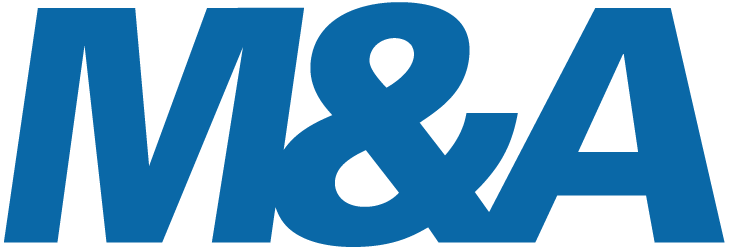Pitch Best Deal Mid-Cap 2020: Royal DSM – Royal CSK

De beste deal van het jaar is meer dan het hoogste cijfertje in de krant en de kunst van het dealmaken is meer dan het opstellen van een contract. De Awards voor de beste deal zou dus niet alleen op de prijs van de deal gebaseerd moeten zijn, maar vooral op de – toegevoegde – waarde voor een bedrijf en de exit.
Bekijk alle Best Deal Mid-Cap pitches & stem direct
Name of the deal: Sale of Royal CSK Food Enrichment to Royal DSM
Date: Announced 18 November 2019, closed 30 December 2019
Published value: €150 million
Buyer(s): Royal DSM
Target: Royal CSK
Seller: CSK shareholders
M&A Database: View more details of the deal
Involved firms and advisors sell side:
Accuracy (Financial Due Diligence), Clifford Chance Amsterdam (Legal Advisory Corporate M&A), Atlas Tax Lawyers (Tax Due Diligence)
Involved firms and advisors target:
Rabobank (M&A Advisory), NautaDutilh (Legal Advisory Corporate M&A), KPMG (Financial Due Diligence)
Involved firms and advisors buy side:
Rabobank (M&A Advisory), NautaDutilh (Legal Advisory Corporate M&A), KPMG (Financial Due Diligence)
Pitch
Brief description deal / Deal outline
The key Dutch dairy cooperatives Royal FrieslandCampina, DOC Kaas, CONO Kaasmakers and Rouveen Kaasspecialiteiten sold Royal CSK – a global player in the development, production and sales of dairy (bacterial) cultures and complementary ingredients for among others cheese making – to the Food Specialties division of Royal DSM for a cash consideration of ca. EUR 150mln in a controlled auction setting. This transaction process excelled in complexity, sensitivity, speed and competitiveness.
Why should this deal win the Award for Best Deal 2020?
This transaction process excelled in complexity, sensitivity, speed and competitiveness. A combination of thorough preparation, tight deal execution, constructive dialogue between stakeholders and an attractive “asset” to sell resulted in a successful transaction for all stakeholders involved.
Complexity and sensitivity were expressed by the fact that Royal CSK’s shareholder base consists of the major Dutch cheese producers Royal FrieslandCampina, DOC Kaas, CONO Kaasmakers and Rouveen Kaasspecialiteiten (processing nearly 90% of the Dutch raw milk) and the fact that Royal CSK develops, produces and sells among others (bacterial) dairy cultures which are a key ingredient for cheese making to dairy players globally, including its own shareholders. Given these dairy cultures are pivotal for the shareholders themselves to produce their renowned Dutch-type cheeses, the transaction in itself is sensitive. It became complex because of the shareholder and transaction structure.
Royal CSK’s shareholders agreed years ago that none of the shareholders should actually control Royal CSK as that shareholder would then control the development, production and sales of a key cheese making ingredients for its competitors. As such Royal CSK should operate standalone and its shareholders set up a company structure including Koninklijke CSK Food Enrichment CV (a commanditaire vennootschap / limited partnership) and CSK Food Enrichment BV acting as general partner of CSK Food Enrichment CV (together “Royal CSK”) to furnish that.
After a strategic review conducted by Royal CSK management in mid-2019, they advised their shareholders it would be in the interest of Royal CSK to find a new shareholder that could unlock a new phase of growth. The sellers, also being key competitors in their home cheese markets, agreed to investigate a sale, despite different agendas and reluctance to sell their supplier of cheese cultures. To address the latter concern, certain very important non-financial deal conditions were set and kept to the end by the sellers. Additionally, in preparation of the eventual sales process, the sellers concluded the optimal transaction structure was a combination of an asset and share deal, adding more complexity to the already rather odd company structure and requested non-financial criteria. A thorough preparation of the sales process was required to enable a successful transaction for the shareholders and the target.
Speed and competitiveness were displayed by the fact that after a thorough preparation process a mix of strategic and financial investors were invited to the transaction process in the second half of August 2019 while the shareholders needed to close the deal before December 31st, 2019, including six weeks’ time required for antitrust approval.
The buyer landscape showed very strong appetite for acquiring Royal CSK, making it a challenge to manage the interests of all shareholders, the potential buyers and the timelines while addressing the aforementioned complexities. Eventually a selected number of potential buyers were allowed to the due diligence phase after which they were invited to submit binding offers and full mark-up / executable transaction documentation, addressing among others the important non-financial conditions.
The process remained very competitive up to the very end (incl. unsolicited offers, etc). Ultimately and after a very constructive negotiation, the sellers found in DSM a buyer checking all the boxes and the target in DSM a partner with a complementary offering and a highly comparable culture and vision. Parties reached agreement, subject to some condition precedents, on Friday evening November 15th, 2019 and announced the transaction on Monday morning November 18th, 2019, after which the antitrust process immediately started. All condition precedents were fulfilled in the second half of December and the transaction was closed on December, 27th, 2019.
Just in time, but too late to nominate this deal for the 2019 M&A Awards. As such now nominated for the 2020 M&A Awards!
Deal rationale:
Royal CSK is a global ingredients player in taste, texture and bio-protection within dairy products. Over its 100 years existence, Royal CSK developed an attractive proposition of dairy cultures and complementary ingredients (e.g. coatings, coagulants, naturally produced lactic acid and media) in Europe and North America. CSK has a brand new and well-invested production infrastructure with state-of-art fermentation facilities in Leeuwarden (NL) and R&D facilities in Wageningen (NL). Though doing very well with solid growth over the past years, Royal CSK experienced high competition in its markets, primarily driven by players having much larger scale. Consequential to a strategic review conducted, Royal CSK management concluded and advised its shareholders that joining Royal CSK’s outstanding capabilities with that of another market player with a similar strategic agenda would sustain their combined right to win in the market and unlock a next phase of strong growth. The shareholder base agreed and initiated a competitive sales process.
What is the impact of this deal for the company?
Through this transaction, Royal CSK and DSM became more future proof. Their (dairy) culture activities are complementary, enabling among others more innovation for customers, unlocking new growth potential. The target, together with its shareholders, set certain non-financial requirements to the transaction which a potential buyer should agree to. An example is retaining Royal CSK’s product portfolio, DNA, brand and company culture and ability to operate with certain independence within the buyer’s group. While owned by DSM, Royal CSK is still highly recognizable in the market today. With DSM – having sound motivators to acquire Royal CSK, a great cultural fit and complementarity between businesses – Royal CSK and its employees found a solid new home.
What is the impact of this deal for the direct stakeholders?
For Royal CSK’s customer base there is actually limited change, except they will be offered a wider and better set of capabilities and innovation potential. For Royal CSK’s employee base there will obviously be some changes, however these are limited to a certain extent (see above). With DSM as a new mother company, Royal CSK’s employees find a more attractive working environment as they are among others provided with much more career & development opportunities. Royal CSK’s former shareholders now only remain customers of the company. However as certain long-term agreements were made as part of the deal, there is no material change in that relationship.
What is the impact of this deal on society?
Royal CSK produces and sells among others specific (bacterial) dairy cultures used as a key ingredient to make Dutch type cheeses like Gouda and Edam. Dutch cheese producers, like Royal CSK’s former shareholders, call these specific sets of cultures Dutch Heritage cultures. As the name states, these ingredients are pivotal for making famous Dutch type cheeses which are sold globally and form as such a unique part of the Dutch heritage. By not carefully selecting an appropriate buyer and making certain agreements, the uniqueness of Dutch type cheese (produced in Holland) could be jeopardized (Dutch type cheese produced outside the Netherlands for example). By concluding this transaction with DSM and agreeing certain binding agreements, the production and supply of these Dutch heritage cultures remain under Dutch ownership and are safeguarded for the Dutch cheese producers
What was most complex about this deal?
This transaction held a combination of complex factors:
First, the shareholder structure was rather complex. Four shareholders that are competitors in the cheese market with different agendas. Given the cheese cultures are a pivotal ingredient in cheese making, shareholders agreed none of them should actually be allowed to manage/control Royal CSK. As such a structure was set up with Koninklijke CSK Food Enrichment CV (a commanditaire vennootschap / limited partnership) and CSK Food Enrichment BV acting as general partner of CSK Food Enrichment CV. This rather odd company structure, in combination the preferred deal structure (share & asset deal), initiation of the sale by Royal CSK management, required careful and thorough consideration of the options and preparations of the process. Key was to manage and treat all shareholders equally and aligning interests, while also executing a competitive sales process under substantial time pressure.
Second, the selling shareholders were also key customers to the target. Given the importance of the Dutch Heritage dairy cultures for then, the shareholders independently required guaranteed long-term supply if Royal CSK would change ownership. Obviously this had its effect on the structuring of the sales process and eligible potential buyers.
Third, the non-financial requirements set by the target and its shareholders added an additional layer of complexity in the competitive sales process setting as these would have additional operational and financial implications to the buyer you would normally expect and make offers in a competitive process more difficult to compare. To convey the need for such non-financial conditions and ensure comparability of offers a diligent approach by the sell-side advisors was required, which they did very well. DSM, a company with strong Dutch DNA and history, truly understood this request and came forward as the party checking all the boxes.









